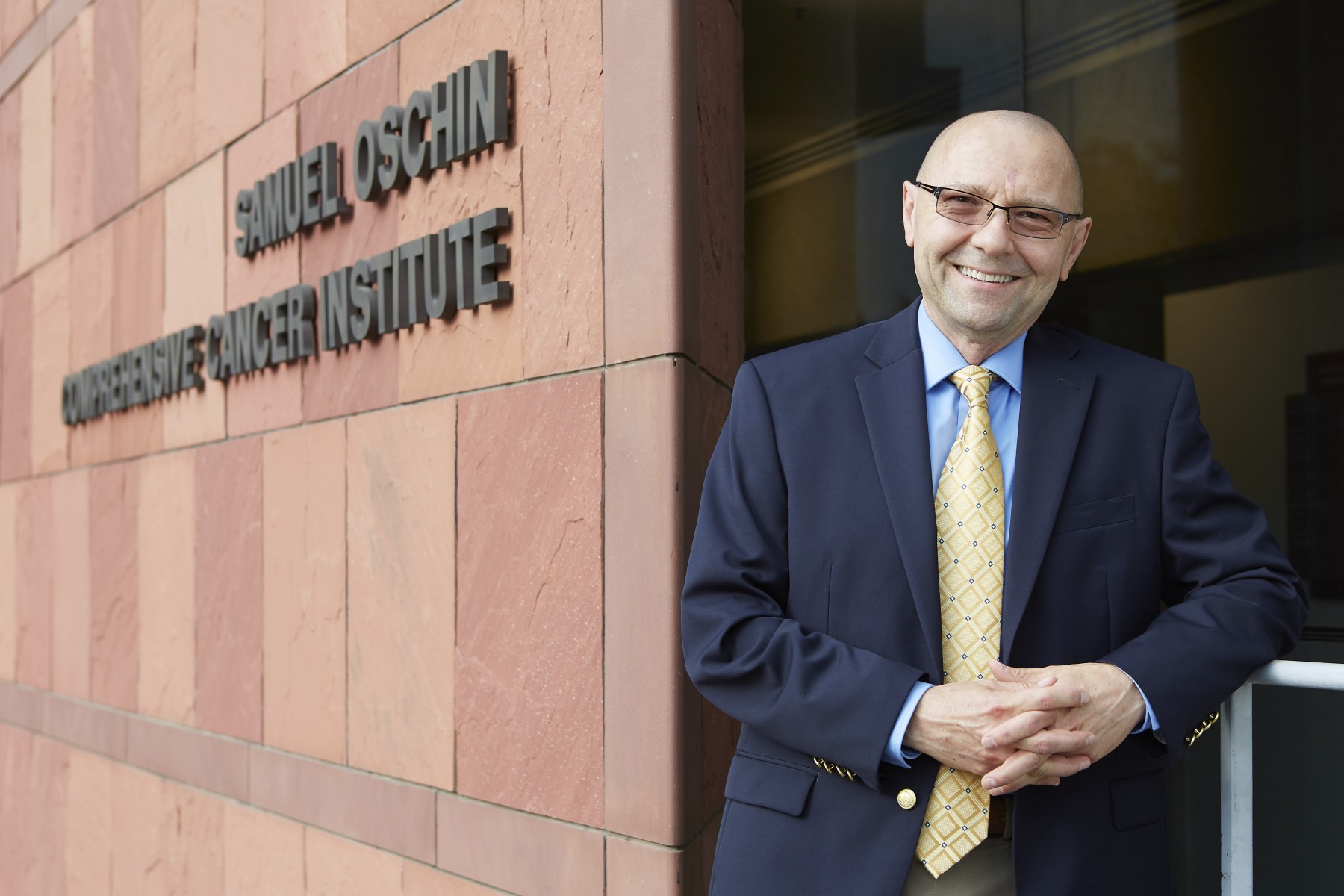CNN: U.S. Cancer Death Rate Hits 25 Years of Decline, Study Says
CNN.com interviewed Dan Theodorescu, MD, PhD, director of Cedars-Sinai Cancer for a Jan. 8 story about the steady drop in the rate of people dying from cancer in the U.S. The decline in cancer deaths—a whopping 27 percent—has occurred over more than two decades. The CNN.com story was based on an American Cancer Society study that was published Jan. 8 in CA: A Cancer Journal for Clinicians.
That good news translates to about 2.6 million fewer cancer deaths than would have occurred if death rates remained at their peak in 1991, according to the study. That year, there were 215.1 deaths per 100,000 people nationwide. The rate dropped by 1.5 percent per year to 156 per 100,000 people in 2016, according to the CNN report.
“I would say that this is the best data out there for the oncology community and those concerned with healthcare in America,” Theodorescu, who was not involved in the study, told CNN.com.
The study also showed a narrowing of the disparity in cancer death rates between African-American and white patients. Theodorescu and other experts attribute the reason for the overall decline in cancer deaths to less smoking, improvements in detecting cancer and notable advances in cancer treatments.
Still, the American Cancer Society study showed that socioeconomic inequalities in cancer deaths widened over the last three decades. Between 2012 and 2016, the overall cancer death rate was about 20 percent higher among those who live in the poorest U.S. counties, compared with those living in the wealthiest ones. The three leading causes of death in the U.S. in 2017 were heart disease, cancer and accidents or unintentional injuries, according to the U.S. Centers for Disease Control and Prevention.
Why the persistent disparity?
“Poverty has been a relentless obstacle to receiving cancer care because of lack of, or low insurance coverage,” Theodorescu told CNN.com. “No insurance or low-coverage insurance reduces the incentive to visit the doctor for symptoms and even more for preventive health practices, such as smoking cessation, yearly physicals, and immunizations against cancer-causing viruses.”
The Cedars-Sinai Research Center for Health Equity is addressing the pressing needs for the reduction of health inequities through research and research-driven community outreach and engagement in Los Angeles County, one of the nation’s most diverse counties.
Click here to read the complete CNN article




